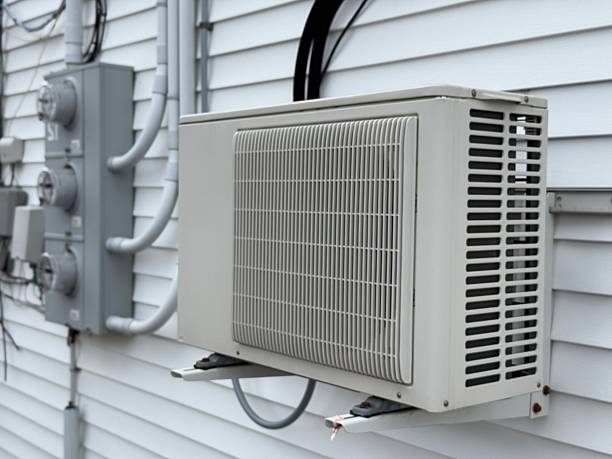Winter HVAC Maintenance: Your Complete Guide
As winter approaches, ensuring your heating system operates efficiently becomes crucial for comfort and cost savings. Winter HVAC maintenance is not just about keeping your home warm—it’s about optimizing energy efficiency, preventing costly repairs, and maintaining excellent indoor air quality throughout the cold weather months. This comprehensive guide will walk you through essential winter HVAC maintenance tips that every homeowner should know to keep their system working properly and their heating bills manageable during extreme temperatures.
Why Winter HVAC Maintenance Matters for Your Home
Winter HVAC maintenance is the foundation of a reliable home heating system. Without regular inspections and routine maintenance, your HVAC system works harder than necessary, leading to increased energy bills and potential breakdowns when you need heat most. A well-maintained hvac system can reduce heating costs by up to 30% while extending the lifespan of your equipment.
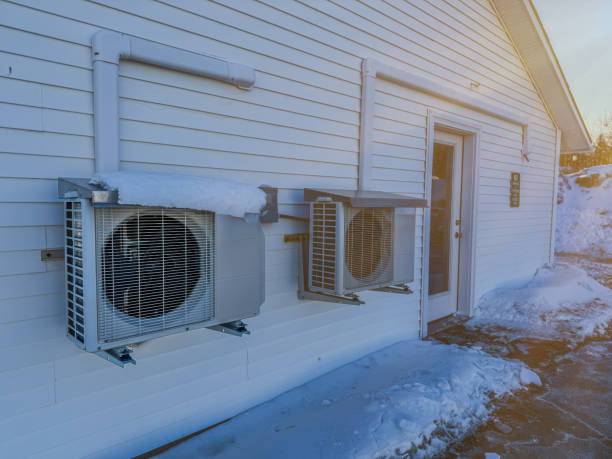
The winter season puts immense strain on your heating system. Without proper winter hvac maintenance, accumulated dust, worn electrical connections, and aging air filters force your system to consume more fuel and energy while delivering less heated air to your living spaces. Understanding how HVAC systems work helps homeowners recognize the importance of regular maintenance.
Key Benefits of Regular HVAC Maintenance
Implementing a winter hvac maintenance checklist delivers multiple advantages for your home heating system. An efficient hvac system maintains optimal performance while reducing energy consumption and preventing emergency breakdowns during cold weather.
- Energy savings: A properly maintained system uses significantly less energy, reducing monthly heating bills
- Extended equipment life: Preventative maintenance prevents premature system failure and costly repairs
- Improved indoor air quality: Clean air filters and vents ensure healthy indoor air throughout winter months
- Lower heating costs: Optimized systems with proper air circulation reduce fuel consumption
- Fewer emergency repairs: Routine maintenance catches issues before they escalate into major problems
Essential Winter HVAC Maintenance Checklist
Replace or Clean Air Filters Regularly
Air filters are your HVAC system’s first line of defense against dust, allergens, and debris. During winter months, when your heating system runs constantly, filters collect dust rapidly and can restrict airflow, forcing your hvac system to work harder and reducing energy efficiency by up to 15%. According to the U.S. Department of Energy, replacing clogged filters can lower energy consumption by 5-15%.
Check your air filters monthly during winter long cold spells. Most residential systems require filter changes every 30-90 days, but during peak heating season, inspect them more frequently. This simple winter hvac maintenance task takes only a few minutes but delivers significant energy savings and improved indoor air quality.
Schedule Professional HVAC Maintenance
While DIY maintenance is valuable, scheduling hvac maintenance with a professional hvac technician ensures comprehensive system evaluation. A qualified technician inspects the heat exchanger, checks electrical connections, tests the furnace burner, verifies thermostat settings, and examines components for safety and efficiency.
Heating Maintenance services ensure your system operates safely and efficiently throughout the winter season. Professional inspections identify gas leaks, worn components, and efficiency issues that homeowners typically miss during routine maintenance.
Optimize Your Thermostat Settings
Your programmable thermostat is a powerful tool for conserving energy without sacrificing comfort. Proper thermostat settings can reduce heating costs by 10-15% annually. Set temperatures lower when sleeping or away from home—each degree reduction saves approximately 3% on heating bills.
Test your thermostat’s accuracy during winter hvac maintenance by comparing its reading with a separate thermometer. Consider upgrading to a smart thermostat that learns your preferences and automatically adjusts for optimal energy efficiency, as noted by the Department of Energy’s thermostat guidance.
Advanced Winter HVAC Maintenance Tips
Inspect and Clean Air Vents and Registers
Air registers and supply vents distribute warm air throughout your home. When furniture, curtains, or dust obstruct these openings, air circulation suffers, forcing your heating system to run longer and consume more energy. Walk through your home during winter hvac maintenance and ensure all air vents remain unblocked.
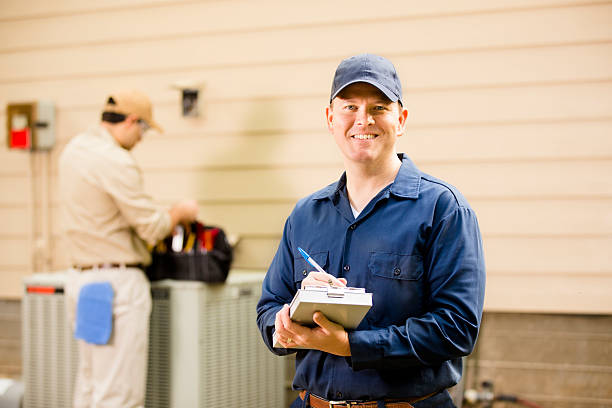
Remove any items within two feet of registers and clean supply vents with a vacuum attachment to remove accumulated dust and debris. This improves air circulation and indoor temperatures while reducing strain on your system. Understanding HVAC basics helps homeowners maintain proper airflow throughout their homes.
Seal Ductwork and Prevent Air Leaks
Leaky ducts waste up to 30% of your heated air before it reaches living spaces. During winter hvac maintenance, inspect accessible ductwork for gaps, disconnections, or damage. Seal leaks with mastic sealant or metal tape to ensure warm air reaches its intended destination.
Pay special attention to ducts in unconditioned spaces like attics and basements where heat loss is greatest. Check doors and windows for drafts as well—proper sealing keeps warm air inside and cold weather outside, reducing how hard your hvac system must work.
Maintain Your Heat Pump or Outdoor Unit
Even though your air conditioner sits idle during winter months, the outdoor unit requires attention. Remove leaves, branches, and debris that accumulated around the unit. Ensure at least two feet of clearance on all sides for proper airflow, which is especially critical for heat pump systems providing winter heating.
For heat pump systems, winter hvac maintenance of the outdoor unit is essential for efficient operation. Ice buildup can restrict airflow and damage components. Gently remove snow accumulation, but never chip away ice—this can damage delicate fins and coils. When considering upgrades, explore the most energy efficient HVAC systems available.
Utilize Ceiling Fans for Better Air Circulation
Despite popular belief, ceiling fans aren’t just for cooling. During winter, reverse your ceiling fans to rotate clockwise at low speed. This pushes heated air that naturally rises back down to living areas, improving comfort and energy efficiency without forcing your heating system to work harder.
This simple winter hvac maintenance strategy can reduce heating costs by redistributing warm air more effectively throughout your home, particularly in rooms with high ceilings.
Cost-Saving Winter HVAC Maintenance Strategies
Monthly and Seasonal Maintenance Tasks
| Frequency | Maintenance Task | Impact on System |
| Monthly | Check and replace air filters | Improves air circulation and energy efficiency |
| Monthly | Inspect visible ductwork for damage | Prevents heated air loss and energy waste |
| Monthly | Test thermostat accuracy | Ensures proper temperature control |
| Monthly | Clear debris from outdoor unit | Maintains optimal airflow for heat pump systems |
| Seasonal | Schedule professional hvac maintenance | Prevents costly repairs and extends system life |
| Seasonal | Clean air registers and supply vents | Improves indoor air quality and warm air distribution |
| Seasonal | Test carbon monoxide detectors | Ensures home safety during heating season |
| Seasonal | Inspect insulation in attics and crawl spaces | Reduces heat loss and heating bills |
Implementing these winter hvac maintenance tasks prevents major system failures and reduces energy bills. Small investments in routine maintenance deliver significant energy savings while extending equipment lifespan. Learning how to clean your HVAC system properly ensures optimal maintenance results.
Understanding Your Energy Bills
Monitor your energy bills throughout winter months to identify potential HVAC system problems. Sudden spikes may indicate issues requiring professional attention, such as dirty filters restricting airflow, failing components, or ductwork leaks wasting heated air.
If heating bills increase significantly despite consistent usage and regular winter hvac maintenance, schedule professional inspection to diagnose efficiency issues. The Environmental Protection Agency recommends regular maintenance to ensure both efficiency and healthy indoor air quality.
Choosing the Right HVAC Professional
Not all winter hvac maintenance providers deliver equal service quality. When selecting a professional hvac technician, verify proper licensing and insurance, confirm experience with your system type, and research customer reviews for reputation and reliability.
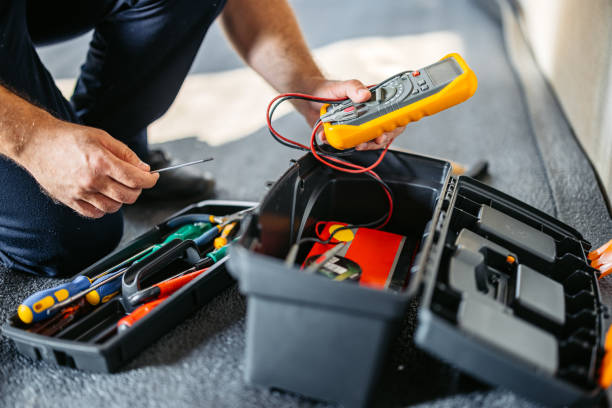
Callidus Air provides comprehensive winter hvac maintenance services backed by experienced technicians who understand the unique challenges of cold weather system operation. When replacement becomes necessary, knowing how to choose the right HVAC system is crucial for long-term comfort and efficiency.
Common Winter HVAC Problems and Solutions
System Won’t Start or Heating Mode Fails
If your heating system fails during cold weather, several quick checks can identify the problem before calling a professional. Most startup issues result from simple problems homeowners can resolve within a few minutes.
- Check thermostat batteries and verify settings are correct for heating mode
- Inspect circuit breakers and power switches to ensure system receives electricity
- Replace air filters if severely clogged, as restricted airflow triggers safety shutoffs
- Verify outdoor unit is clear of snow, ice, and debris for heat pump systems
- Contact a professional hvac technician if problems persist after basic troubleshooting
Uneven Heating Throughout Your Home
Temperature inconsistencies indicate airflow or distribution problems requiring winter hvac maintenance attention. Blocked vents from furniture placement, ductwork leaks wasting heated air, inadequate insulation, or system imbalance may require professional adjustment.
Regular winter hvac maintenance identifies and corrects these issues before they significantly impact comfort or energy bills. Ensure air registers remain unobstructed and supply vents are clean to maintain optimal air circulation.
Environmental Impact of Proper Maintenance
Beyond saving money and improving comfort, winter hvac maintenance benefits the environment. Efficient systems consume less fuel and electricity, reducing carbon emissions and environmental impact. By maintaining peak condition through regular maintenance tips implementation, you contribute to broader conservation efforts.
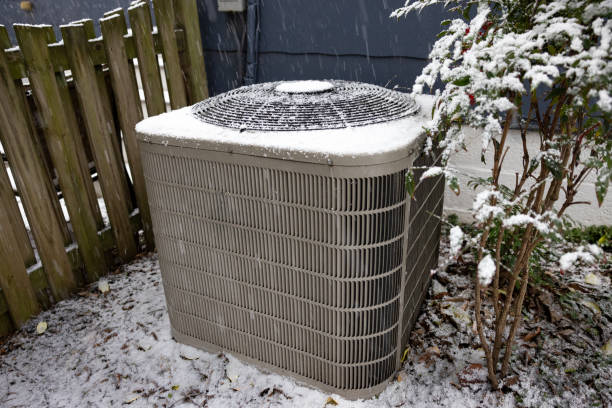
Energy efficiency improvements through proper winter hvac maintenance can reduce your home’s carbon footprint by hundreds of pounds annually while simultaneously reducing energy bills—a win-win for your wallet and the planet.
Take Action on Your Winter HVAC Maintenance Today
Winter hvac maintenance isn’t optional—it’s essential for comfort, efficiency, and cost control during cold months ahead. From simple DIY tasks like filter changes to professional tune ups ensuring safe operation, every maintenance step contributes to better system performance and energy savings while preventing costly repairs.
Don’t wait until your system fails during extreme temperatures. Implement these winter hvac maintenance tips now to ensure your home stays warm all winter long while keeping heating bills manageable. Selecting the best HVAC for your home ensures optimal performance for years to come.
Ready to optimize your heating system? Contact us today to schedule professional winter HVAC maintenance and ensure your system is ready for whatever winter brings. Our experienced technicians provide comprehensive service that keeps your home warm and your energy costs low.
Frequently Asked Questions About Winter HVAC Maintenance
How often should I perform winter HVAC maintenance?
Winter hvac maintenance should occur at least once annually before the heating season begins, typically in fall. However, certain tasks like filter changes should happen monthly during winter months when your system runs constantly. Professional maintenance visits should be scheduled annually, while homeowners can handle routine tasks more frequently to ensure optimal energy efficiency.
Can I perform winter HVAC maintenance myself, or do I need a professional?
Many winter hvac maintenance tasks are DIY-friendly, including replacing air filters, cleaning air registers, checking thermostat settings, and clearing debris from outdoor units. However, technical tasks requiring specialized tools—such as inspecting the heat exchanger, checking electrical connections, or testing for gas leaks—should always be handled by a professional hvac technician to ensure safety and proper system operation.
How much does professional winter HVAC maintenance cost?
Professional winter hvac maintenance typically costs between $80-$200 for a comprehensive tune-up, depending on your location, system type, and service provider. This investment pays for itself through improved energy efficiency, prevented costly repairs, and extended equipment life. Many HVAC companies offer maintenance agreements providing annual service at discounted rates.
What’s the best temperature setting for energy savings during winter?
For optimal energy savings during winter, set your programmable thermostat to 68°F when home and awake, and lower it by 7-10 degrees when sleeping or away. This winter hvac maintenance strategy reduces heating costs by approximately 10% annually without sacrificing comfort. Smart thermostats automate these adjustments for maximum energy efficiency.
How do I know if my HVAC system needs repair or replacement?
Several signs indicate your system may need more than routine winter hvac maintenance: frequent breakdowns requiring costly repairs, age exceeding 15-20 years, rising energy bills despite regular maintenance, uneven heating throughout your home, or excessive noise during operation. If repair costs exceed 50% of replacement cost, or your system struggles to maintain comfortable temperatures, replacement may be more cost-effective.

